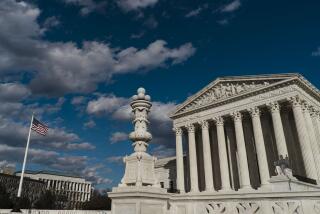Use of Property Tax for Schools Illegal in N.H.
- Share via
CONCORD, N.H. — The state Supreme Court ruled Wednesday that New Hampshire’s system of paying for public education with local property taxes is unconstitutional because it creates widely unequal tax burdens.
The decision throws into question how the state will revise the way it underwrites education. Opponents are certain to raise the specter of a broad-based tax in a state where opposition to general sales or income taxes is a political sacrament.
The state relies on local property taxes for 90% of school funding, the highest proportion in any state. A lower court had said the system provides children with an adequate education as required by the state constitution, but the Supreme Court disagreed.
Wednesday’s ruling came in a lawsuit brought by five poor communities that claim the system discriminates against children in poor cities and towns.
A somber Gov. Jeanne Shaheen said at a news conference that while she disagrees with the decision, she, state education officials and the attorney general will work with the state Legislature toward a resolution.
“We need time to analyze it,” she said.
The state Supreme Court said local property taxes for education are essentially a state tax--not a local tax--because it is the state’s duty to provide children an adequate education and guarantee funding for it.
While the state can delegate that responsibility to communities, it can’t do it in a way that leads to widely unequal tax burdens, the court said.
More to Read
Sign up for Essential California
The most important California stories and recommendations in your inbox every morning.
You may occasionally receive promotional content from the Los Angeles Times.










